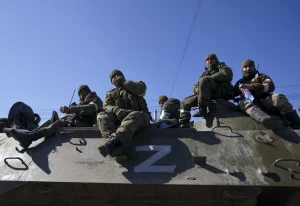
IAEA faces scrutiny over ties to Russian nuclear projects in occupied Ukraine
The IAEA has faced criticism for actions perceived as legitimizing Russia's control over occupied Ukrainian territories, despite publicly affirming Ukraine's territorial integrity
Ukrainian officials have repeatedly criticized the International Atomic Energy Agency (IAEA) for turning a blind eye to Russia’s actions at the occupied Zaporizhzhia nuclear power plant. An investigation by Radio Liberty, based on internal documents, points to more reasons for concern, particularly IAEA’s support of nuclear research in Russian-occupied Crimea and its training of specialists from occupied Donetsk in Moscow.
While the IAEA has publicly affirmed Ukraine’s territorial integrity, including statements from Director Rafael Grossi, its actions have raised questions. In 2016, the IAEA supported a project studying pollution trends along the Russian Black Sea coast, including in Sevastopol—an area recognized by the IAEA as Ukrainian territory. Sevastopol, however, was listed as part of Russia in the project documentation, leading to criticism from experts like Olha Kosharna, an independent nuclear energy expert, who pointed out the inconsistency between the agency’s stance and its actions.
In addition, the IAEA faced backlash for its perceived leniency toward Russia’s military use of nuclear sites in occupied Ukraine. Despite Ukraine’s warnings of potential dangers at the Zaporizhzhia plant, Grossi has been accused by Ukrainian officials, including Mykhailo Podolyak, of minimizing the risks, with Podolyak even calling the agency’s actions a “clown show.”
Another troubling project involved research on bird migration and avian flu, which collected samples from Crimea. There was also a 2018 Moscow-based training course on cancer treatment, funded by the IAEA, that included participants from occupied Donetsk, listed as part of Russia in the agency’s internal system. This sparked further concern over the agency’s neutrality, as it suggested quiet acceptance of Russia’s claims over Ukrainian territories.
Despite these revelations, the IAEA insists that its involvement in these projects is purely technical and does not reflect any change in its recognition of Crimea as Ukrainian. The agency maintains that these projects fall under its mandate to promote scientific cooperation. Ukraine, however, strongly opposes any international projects in its occupied territories without its consent, arguing that such actions violate its sovereignty.
Experts like Kosharna note that while the IAEA’s role at the Zaporizhzhia plant has been useful, particularly in documenting incidents, the agency’s broader actions regarding Crimea and Donetsk raise serious concerns about its impartiality in the ongoing war.
- News












































